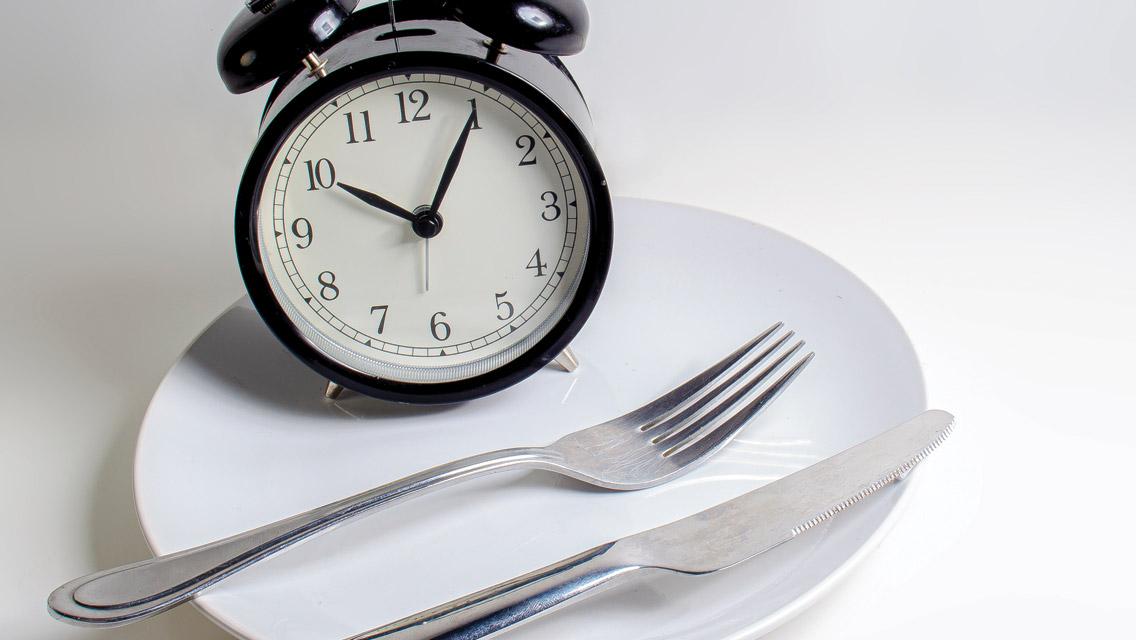My Lovely Wife and I eat our breakfasts in shifts. I rise a good deal earlier than her (she’s a night owl) and typically finish my morning meal and clean up the dishes by the time she’s ready to consider her menu options. It’s been the daily drill around here for as long as I can remember and generally suits our individual temperaments: I’m a get-it-done-and-move-on kind of guy; MLW actually spends some time deliberating about what she’d like to eat and savors all the healthy fare that ends up on her plate.
I’ve never given much thought to the particular benefits or liabilities of our divergent morning meal schedules, but new research suggests seniors and their caregivers should be paying attention to evolving eating patterns in later life. They may signal the presence of various chronic illnesses.
A study published last week in the journal Communications Medicine concludes that meal timing among seniors tends to evolve gradually, as they grow older, toward later breakfasts and dinners. And those delayed morning meals are especially significant, lead study author Hassan Dashti, PhD, RD, argues. They are associated with physical and mental health conditions that result in a higher risk of mortality.
“Our research suggests that changes in when older adults eat, especially the timing of breakfast, could serve as an easy-to-monitor marker of their overall health status. Patients and clinicians can possibly use shifts in mealtime routines as an early warning sign to look into underlying physical and mental health issues,” says Dashti, a nutrition scientist and circadian biologist at Massachusetts General Hospital. “Also, encouraging older adults in having consistent meal schedules could become part of broader strategies to [promote] healthy aging and longevity.”
“Our research suggests that changes in when older adults eat, especially the timing of breakfast, could serve as an easy-to-monitor marker of their overall health status.”
Dashti and his team analyzed data from a University of Manchester longevity study, which included nearly 3,000 British adults with an average age of 64. The participants answered questionnaires detailing their mealtime patterns, lifestyle habits, and medical conditions at approximately five-year intervals over the course of 20 years and submitted blood samples as well.
After accounting for various demographic variables, the researchers concluded that participants whose breakfasts occurred later and later as they aged were more likely than early eaters to suffer from depression, fatigue, and oral health ailments — all of which could affect one’s appetite, sleep, and ability to prepare and enjoy a meal. These people were, perhaps unsurprisingly, also slightly more likely to die during a 10-year follow-up period.
But was it the delayed breakfasts that caused the ailments or the ailments that caused the delayed breakfasts? Anorexia of aging — loss of appetite and reduced caloric intake — is a fairly common syndrome among seniors, and Dashti acknowledges that it could contribute to delayed mealtimes. The study, however, didn’t specifically account for the prevalence of that condition among participants, making the results less conclusive. “Although the observational design cannot establish directionality,” he writes, “it is more likely that the onset of disease leads to shifts in meal timing rather than shifts in meal timing contributing to the onset of disease.”
That’s certainly plausible, but what’s left unclear is why those ailments would especially burden seniors who, on average, delayed their breakfast meals by less than 16 minutes and dinners by barely seven over the course of two decades. We’re talking here about a relatively modest change in habits. Perhaps that explains why the difference in 10-year survival rates — 86.7 percent for late eaters and 89.5 percent for early ones — is barely perceptible.
The numbers, however, are not really the point, Dashti argues. It’s more about observing changes in eating patterns as a way to identify developing health troubles.
“Up until now, we had a limited insight into how the timing of meals evolves later in life and how this shift relates to overall health and longevity,” he explains. “Our findings help fill that gap by showing that later meal timing, especially delayed breakfast, is tied to both health challenges and increased mortality risk in older adults. These results add new meaning to the saying that ‘breakfast is the most important meal of the day,’ especially for older individuals.”
Maybe even if you’re eating it in shifts.





This Post Has 0 Comments